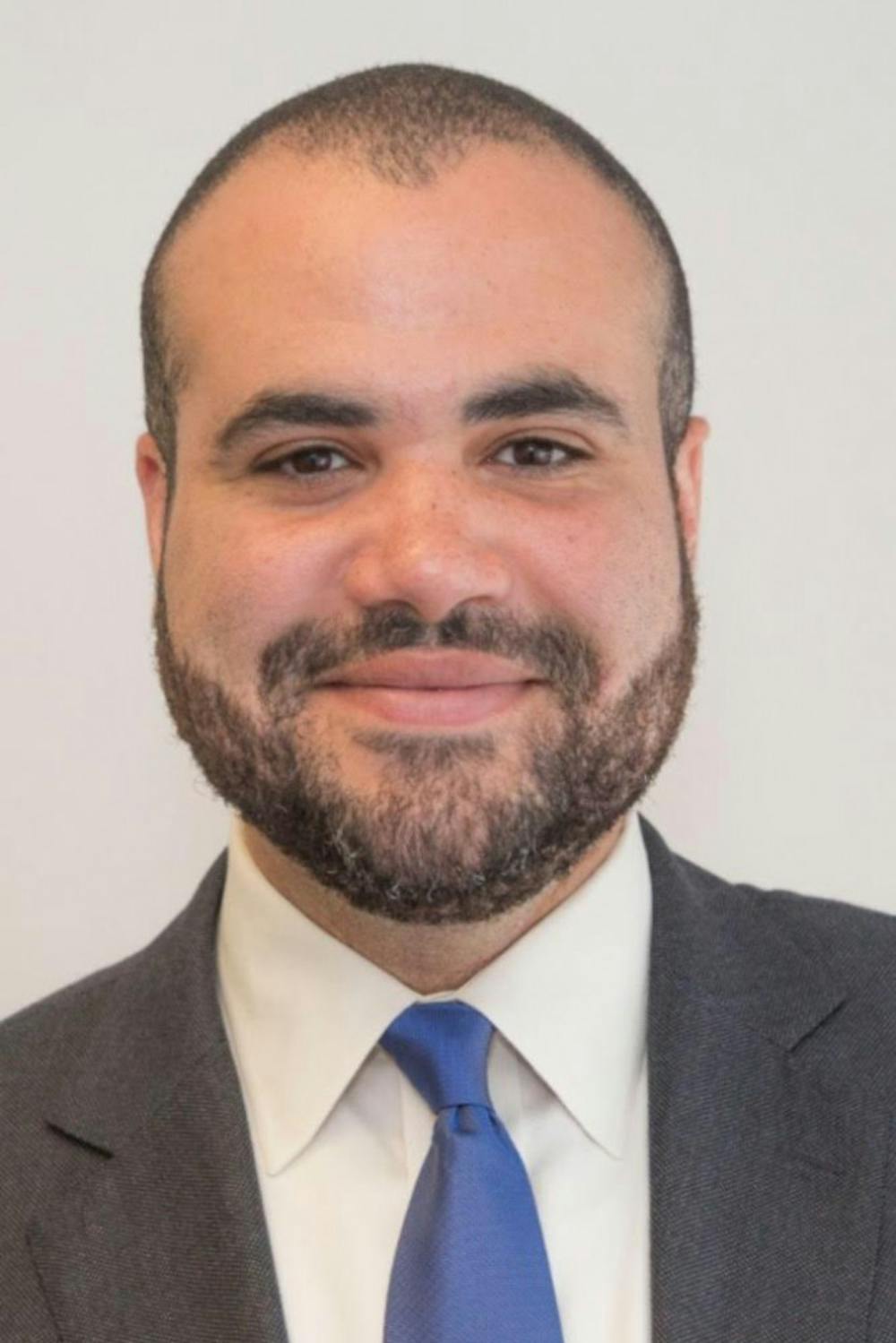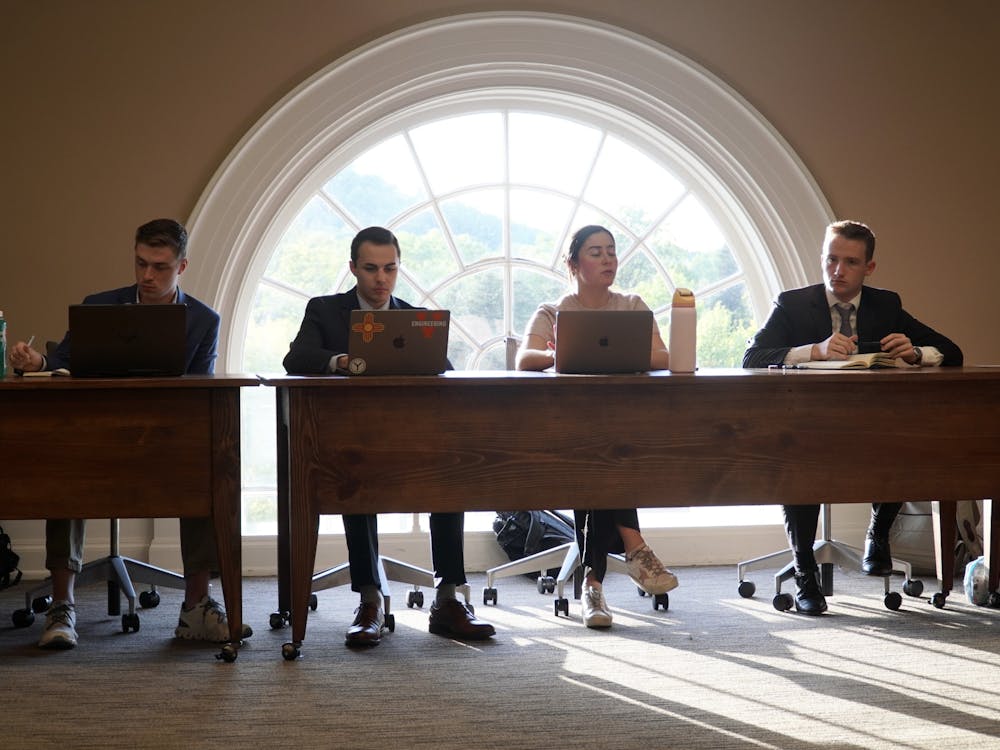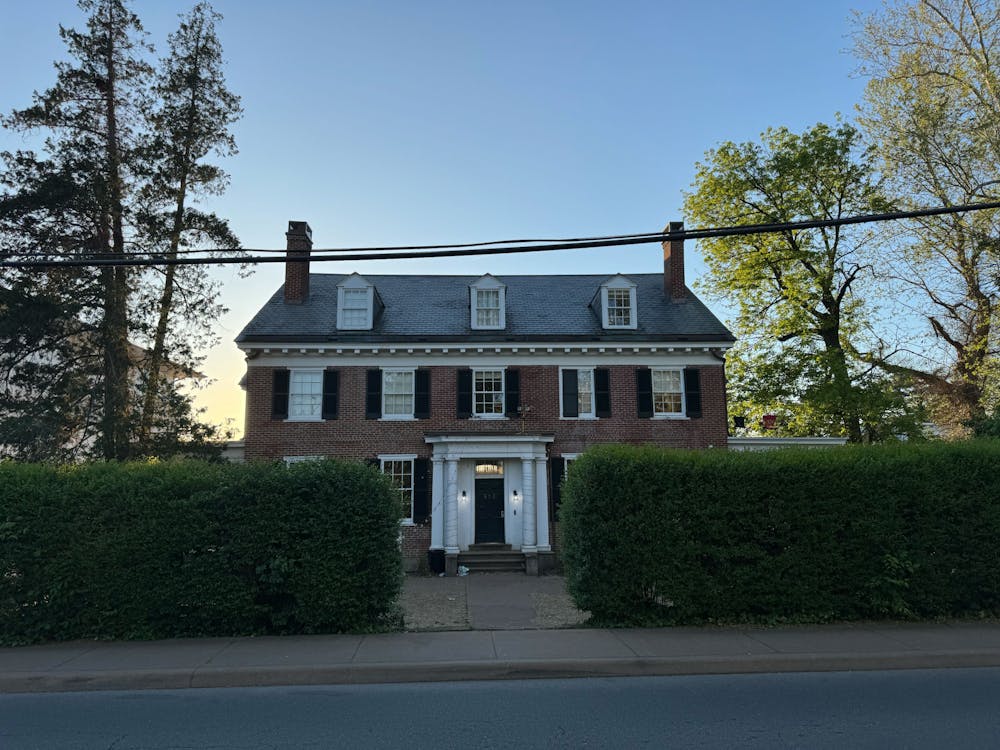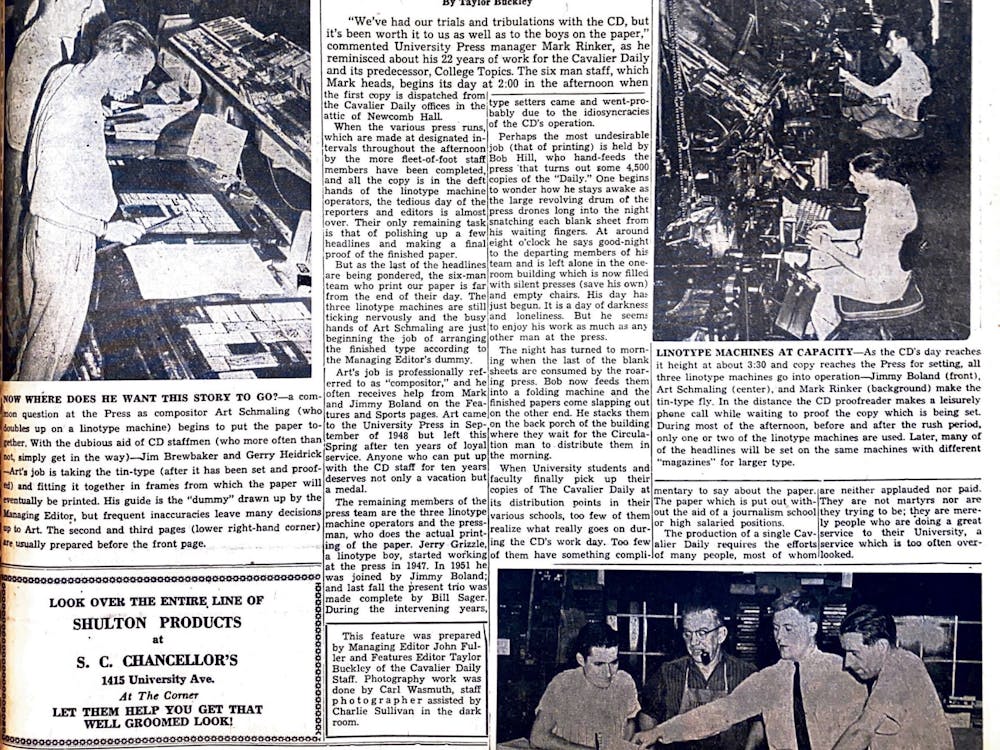Two months ago, The Cavalier Daily published an article on new information related to a racial profiling claim made in 2011 against University Police officers by then-Law student Johnathan Perkins, who subsequently recanted the allegations. As a result of his recantation, Perkins was tried for an Honor code violation and acquitted by the Honor Committee. Six years later, Perkins told the The Cavalier Daily an aspect of his story he said was shared during his Honor trial but never disclosed to the public — he said the FBI was involved in the situation and pressured him to recant his claim.
Perkins said he remained silent about this side of the story due to potential charges that could have been brought against him. While the statute of limitations expired a year ago, he said he was still hesitant to speak out again with the risk of repercussions from significant authority figures.
“I had remained quiet about for six years and it involved kind of speaking the truth to very powerful actors, namely the FBI and local law enforcement generally,” Perkins said. “I didn’t know what news outlets would pick it up and I didn’t know what the response would be.”
Since the publication of The Cavalier Daily’s article two months ago, other news outlets, such as The Huffington Post, The Daily Progress, C-VILLE Weekly, ABA Journal and Above the Law, have written updated stories based on Perkins’ recent statements.
“So far, the response has been overwhelmingly positive, and people have been really kind with their words and feedback regarding the actual substance of what I shared,” Perkins said.
Perkins, who is black, believes he was the victim of race-based discrimination when two University Police officers stopped him on his walk home one night in spring 2011. The officers roughly handled him and searched his belongings, saying he “fit the description” of someone they were looking for. One of Perkins’ professor’s encouraged him to publish his story, which he ultimately did as a letter to the editor of the Virginia Law Weekly.
A month later, Perkins said he received a phone call from FBI Senior Supervisory Resident Agent Robert Hilland. Perkins said Hilland was waiting for him at his car in the Law School parking lot, accompanied by two University Police officers in charge of investigating Perkins’ claim of harassment by the University Police Department.
According to Perkins, the four went into an office at the Law School where Hilland listed all of the consequences that would ensue if Perkins maintained his claim and emphasized that it would all go away if he recanted his statement.
The interrogation lasted for more than two hours, and afterwards, Perkins said he signed a blank piece of paper detailing his recantation as dictated by Hilland. The following day, the University issued a press release explaining Perkins’ recantation, but not specifically mentioning the FBI’s involvement.
Honor Code charges were filed against Perkins for lying. His trial took place in July 2011, and he was found not guilty. He was granted his degree in September 2011, and went on to work for a Pennsylvania law firm.
Despite his acquittal, Perkins said he was called a liar and a “race-baiter,” and has had to deal with negative attention related to his case for the past six years.
“Between 2011 and now, I felt like I was living my life with the knowledge that all of this negative press and media were out there and the knowledge that so, so many people thought I was a liar and someone who would lie — of all things, about race issues — which are so important to me,” Perkins said.
Perkins said he felt a constant burden in discussing issues related to race and police harassment, knowing many people discredited his opinions. He said that changed, however, when he shared the rest of his story.
“The negative things on the Internet about me and the opinions that people held about me were occupying space in my mind and occupying a space in my everyday no matter where I went,” Perkins said. “Now that there is the full story out there, that space isn’t occupied anymore, and I can use it for other things ... I can rest knowing that I’ve done everything I can to tell me entire story.”
University Law Prof. Kim Forde-Mazrui, who Perkins spoke with shortly after both his initial encounter with the police and later the FBI, said Perkins expressed relief after sharing the rest of his story.
“I just have been very gratified by I think how liberated he feels,” Forde-Mazrui said. “For six years, it was always this thing of I could only tell people that we could trust. But now, it’s like I can tell anybody. I don’t even need to ask him, and that just shows a feeling of freedom.”
Perkins’ statements to The Cavalier Daily about the FBI’s involvement in his 2011 recantation and Honor trial gained coverage from local news outlets, including The Daily Progress and the C-VILLE Weekly. His story also gained national media attention when the Huffington Post published an article in October. The blog Above the Law, which wrote pieces about Perkins in 2011, published an updated account with Perkins’ mention of the FBI’s involvement.
The American Bar Association Journal also wrote a recent piece and Inside Higher Ed added a note about Perkins’ statement of the FBI’s involvement at the top of one of their 2011 articles, which questioned the UPD's decision not to press charges against Perkins.
Perkins said, for the most part, the responses of his friends, family and colleagues to the recent press has been positive. Perkins said people who knew about the FBI’s involvement showed solidarity with him and were outspoken in their support for him.
Perkins said he also received messages from people he had lost touch with over the years, who apologized for believing his recantation at the time and thinking he had lied. Others who had expressed at the time how upset they were that the University allowed Perkins to graduate also reached out to apologize.
“Of course I forgive them, and I don’t even know that an apology is necessary,” Perkins said. “They were reacting to what they had been told, which was that I fabricated this. I just hope that moving forward, if they encounter some situation like this that seems a little fishy, I hope that they might be a little bit more questioning.”
Perkins said he thinks the more accepting and understanding reactions to his story now are largely due to the national coverage of similar cases of police harassment and race-based discrimination. Since 2011, activist groups like Black Lives Matter have gained significant prominence.
“In 2017, the public is not surprised to hear stories of police misconduct, particularly against black men,” Perkins said. “The stories of police brutality and misconduct are just all too common, and people are becoming more and more acquainted with the way that many black people have to live their lives in America.”
In November, Perkins published an op-ed in The Marshall Project describing his story. In it, he included ways he hopes society can take steps toward fixing issues of police harassment and discrimination. Perkins said he thinks society can start by believing people of color when they say they experienced something harmful due to their race and continuing to question the facts of a story.
“Not only do I hope people will believe people of color when we … share these negative experiences, but … in cases where something doesn’t make sense, where all of sudden a young man says ‘nevermind, the police actually didn’t do anything,’” Perkins said. “I hope my story calls people to be even just a little bit more open-minded and questioning about those kinds of instances.”
Forde-Mazrui also commented on how Perkins’ story demonstrates the repercussions for speaking out against authority and the need to scrutinize all aspects of a situation.
“This shows that … people get punished in ways if they dare speak out against people who’ve abused their power against them,” Forde-Mazrui said. “I think Johnathan experienced the risk of speaking out against police … I think it’s helping to correct that and actually show maybe in the future we shouldn’t jump to the police’s side either in situations.”
Forde-Mazrui said he spoke with a number of students in the Black Law Student Association about Perkins’ story. After discussing it, some expressed an interest in having Perkins come and speak to them. The meeting has yet to occur, but Perkins said he is looking forward to speaking with Law students. He said he is eager to mend the disconnect that formed between him and the black community, particularly black law students, following his 2011 recantation and reputation as a liar and “race-baiter.”
“There was this very palpable sense … that I had betrayed [the black community], and that is a sense that I can’t blame the black community for because they were, again, going off what was being reported in the newspaper. They didn’t have any reason to doubt what they were reading,” Perkins said. “One of my biggest concerns was that other people of color wouldn’t be taken seriously when they made these complaints or allegations against law enforcement. So, to the extent that I can repair my kind of personal relationship with the Black Law student community, I’m so excited to and eager to [do so].”
Correction: The article previously misstated that the statue of limitations expired five years ago. The statue of limitations expired one year ago.





